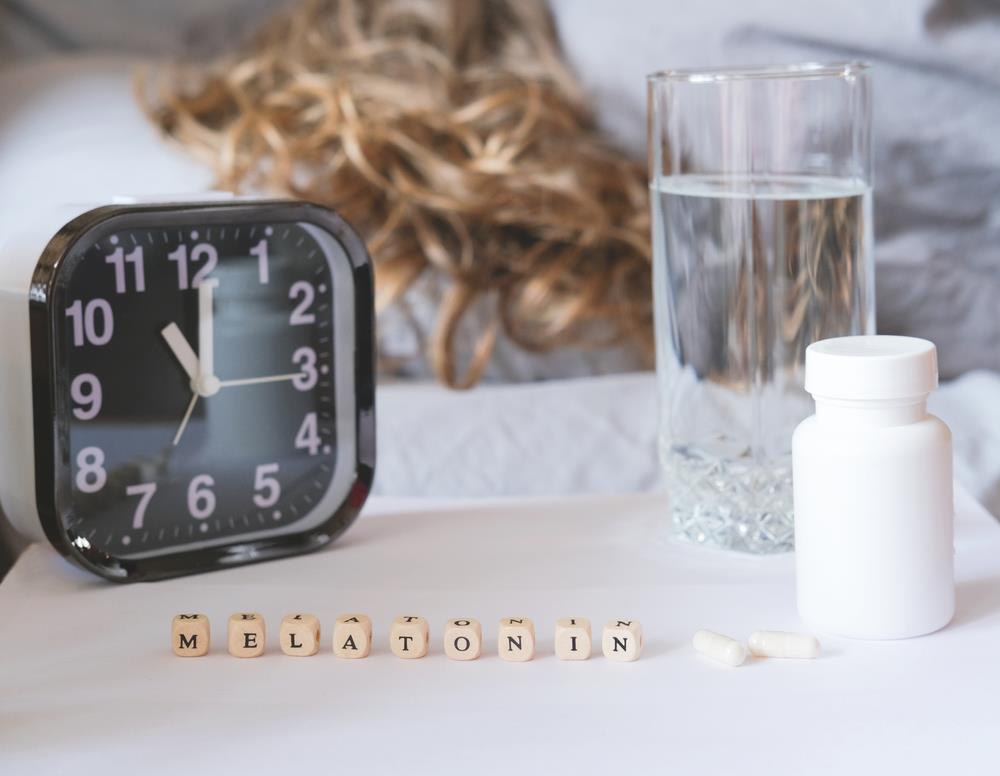Melatonin: Night Guardian or Dangerous Unregulated Supplement?
More and more people are turning to melatonin as a cure for insomnia, but do you really know what you’re putting into your body? Melatonin, the hormone that naturally regulates our biological clock, is now available to everyone as a dietary supplement, without a prescription and without medical supervision. Officially, this means you can buy and use it on your own, but is that wise?
What is Melatonin and How Does It Work? Melatonin is secreted by a small gland in the brain called the pineal gland, and its production starts at dusk. It’s known as the “night guardian” because it signals the body that it’s time to sleep. However, melatonin levels decline with age, especially in women during menopause, which can further complicate sleep.
Why Do Menopausal Women Have Sleep Problems? After age 40, and especially after 60, melatonin levels drop, along with sex hormones like estrogen and progesterone. This leads to thermoregulation issues and hot flashes, which disrupt sleep quality. Women in perimenopause find it harder to fall asleep, wake up more often, and sleep less, affecting their daily functioning.
Is Melatonin the Solution? Professor Dragan Hrnčić from the University of Belgrade’s Medical Faculty warns that melatonin is not a magic cure. He recommends first trying to establish a regular sleep schedule, morning exposure to daylight, and lifestyle changes. Melatonin can help, but only in appropriate doses and short-term — no more than two to four weeks.
Dangers and Risks of Using Melatonin Without Supervision Melatonin is sold as a dietary supplement, meaning it’s not as strictly regulated as medicine. Studies have shown that products on the market often contain significantly higher concentrations than declared. Long-term use can disrupt natural melatonin production and lead to psychological dependence — you won’t be able to fall asleep without it.
Side effects occur in 1-2% of users and include headaches, drowsiness, nausea, and reduced concentration. Extra caution is needed for older adults and those with chronic illnesses.
How to Use Melatonin Properly? Buy supplements only from pharmacies and trusted manufacturers. Avoid using mobile phones and other light-emitting devices at least an hour before bedtime. Also, a diet rich in tryptophan (nuts, fish, bananas) can help boost natural melatonin production.
Melatonin Marketing: More Harm Than Good? Melatonin has become more popular than it should be, thanks to aggressive marketing campaigns on social media. People take it like candy, without thinking about the consequences. But as Professor Hrnčić says, not every supplement is safe if used recklessly.
Conclusion Melatonin is not a magical fix for insomnia. It can help in certain cases like primary insomnia, jet lag, or shift work, but only under medical supervision and in proper doses. Just because it’s available without a prescription doesn’t mean it’s risk-free.
If you thought melatonin was just another harmless supplement, think again! Your sleep and health are not a joke. So, have you tried melatonin yet, or maybe got it all wrong? Share your experience or just drop a funny comment about how you tried to sleep but couldn’t without a pill. Let the conversation begin!




















